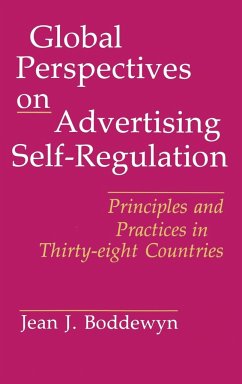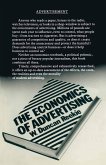The number of advertisements is steadily increasing around the world as affluence grows and more economies shift to a market system. One way to ensure that these ads are truthful, accurate, and wholesome is to rely on industry self-regulation. Through it, peers set up standards of good advertising practice and enforce them as an essential complement to government regulation. With the global expansion of advertising, the tasks of self-regulation have grown, together with some doubts regarding the industry's willingness and ability to develop and enforce ethical guidelines. This unique global study of the subject explores the spread of this social-control institution through a discussion of its relative strengths and weaknessess, a reporting of several surveys conducted by the author, and thirty-eight country profiles prepared with the assistance of practitioners around the world. The first chapter defines self-regulation, analyzes its pros and cons, relates it to government regulation, investigates its structures and processes, discusses the involvement of non-industry members in its functioning, evaluates its effectiveness, and considers its recent spread around the world in the light of new developments such as the completion of the European Common Market. A second section reports the key findings of surveys conducted by the author for the International Advertising Association in 1986 and 1988-89. The last part offers profiles of advertising self-regulation as practiced in thirty-eight countries--including such leading nations as Canada, France, the United Kingdom, and the United States. An appendix includes samples of key codes as well as various evaluations of the practice of advertising self-regulation around the world.
Hinweis: Dieser Artikel kann nur an eine deutsche Lieferadresse ausgeliefert werden.
Hinweis: Dieser Artikel kann nur an eine deutsche Lieferadresse ausgeliefert werden.








